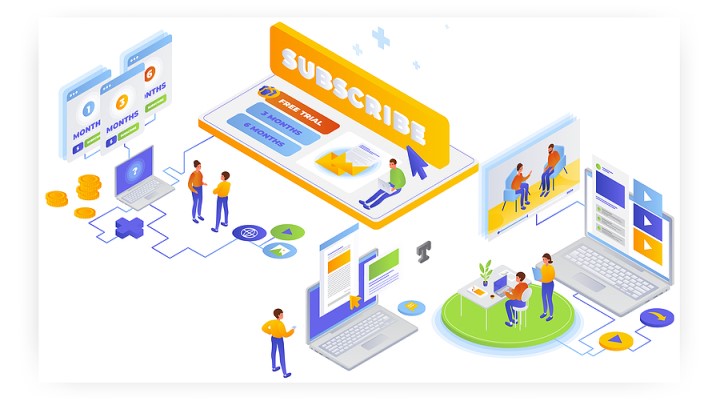Why businesses should consider a subscription business model

From coffee to your local library, you likely use a subscription product or service multiple times a day.
A subscription model is when a business charges a recurring fee for its goods or services. Recurring charges can occur annually, quarterly, or monthly.
Research shows that 15% of online shoppers subscribed to e-commerce services and 46% of consumers subscribed to digital streaming services in the past year.
So what makes the subscription business model so popular with customers and businesses? It offers convenience and personalization for customers, and predictability and sustainability for businesses.
Read on to find out the benefits of implementing a subscription business model and whether it’s right for your business.
1. Predictable revenue
A subscription business model requires customers to make periodic payments. A recurring payment amount is established at the time of the first sale and creates a predictable future revenue stream. For businesses with volatile demand, subscriptions help with demand forecasting and efficient inventory management.
2. Possible to increase earnings
As subscribers gain trust in the brand over time, they are often open to purchasing additional, complementary goods and services offered.
A subscription model allows companies to stay in touch with their customers, thus building strong customer relationships. As a result, upselling and cross-selling becomes easier due to interest in additional value, new features, or additional products and services.
This means you can earn additional revenue from the same customers at no additional acquisition cost.
3. Reduce retention costs
With a subscription model, you don’t have to spend extra marketing dollars targeting your existing customers. Plus, subscribers who pay regularly and have long-term relationships with brands are less likely to opt out, saving businesses money in customer retention.
Can Your Business Leverage a Subscription Model?
The subscription business model has many benefits, but you should know that not every business is a good fit for this model.
Below are some key points to consider before implementing a subscription model.
requirement
For a business to succeed in a subscription model, the product or service must guarantee a subscription.
worth
Helping your customers understand the value of purchasing a subscription compared to a standalone purchase is essential. Customers invest in subscriptions only when there are benefits such as saving money or time.
competition
There is considerable competition for new entrants as many companies are already using a subscription model. Therefore, it is important to ask yourself whether your product or service offers a solution to your needs.
Target consumer
Understanding who your customers are, the problems they face, and how your business provides solutions is essential. If your subscription model doesn’t fit your target market, you won’t succeed.
Businesses that offer goods and services such as car tires, printers, electronics, and home furnishings may not work well with a subscription model because they are unlikely to be purchased on a short-term, regular basis. However, consumables such as beauty products, food, beverages, and consultations thrive as subscription offerings because of their regular need.
If your business doesn’t tick any of the above points, we encourage you to reconsider your subscription model. On the other hand, if you tick all the boxes, it’s time to jump on the subscription bandwagon and take advantage of the opportunity.
Why businesses should consider a subscription business model
Source link Why businesses should consider a subscription business model



